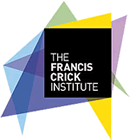Dr G Findlay
No more applications being accepted
Funded PhD Project (Students Worldwide)
About the Project
This 4-year PhD studentship is offered in Dr Gregory Findlay’s Group based at the Francis Crick Institute (the Crick).
Our genomes contain not only the instructions for how our bodies form and function, but also secrets about diseases we’re likely to develop. Through technological breakthroughs, we can now sequence vast amounts of DNA. This has fuelled widespread efforts to use an individual’s genome to improve their health[1]. Despite promise, gains to date have been limited, in part, due to the difficulty of interpreting rare genetic variants. For many genes linked to cancer, understanding the molecular consequences of such variants is vital to determining whether a person is predisposed to develop disease and what should be done clinically to optimise their care.
Our lab leverages recent innovations in genome editing to ask which variants contribute to human disease and how. We use CRISPR-based tools to alter human cells grown in culture and next-generation sequencing to track effects of millions of mutations simultaneously. We compare our experimental data to human phenotypes and computational models to infer which mutations cause disease and why they do mechanistically.
The selected student will lead development of new assays for studying mutations in different tumour suppressor genes, such as BRCA1, APC, and MSH2. The student will perform high-throughput, CRISPR-based mutagenesis targeting coding sequences and regulatory regions using methods including saturation genome editing[2, 3] and CRISPR-based guide-RNA screening[4]. Upon mastery of techniques, the student will be given considerable autonomy to develop improved methods to study mutations’ effects on processes such as DNA repair, splicing, and gene regulation, and to study regions of the genome in which they are strongly interested. In addition to experimental design and technique, the student will be trained to analyse data from high-throughput experiments. There will also be ample opportunities to collaborate with the clinical community.
In this manner, this project will advance our fundamental understanding of how mutations impact processes central to genome function, such as gene regulation, splicing, and protein function, while also having a direct impact on patient care by improving our ability to interpret variants seen in tumour suppressor genes.
Candidate background
No specific experiences are required as long as the candidate is highly motivated to learn, curious about how mutations lead to disease, and excited to develop new methods. Prior studies and lab work in molecular biology, genetics, biotechnology, bioengineering and/or computational biology will be useful. Additionally, expertise in cell culture, library cloning, next-generation sequencing, genome editing, and genomics data analysis would be beneficial.
The successful applicant will be excited to learn both experimental and computational skills and to work as part of a small team with increasing responsibilities. Attention to detail, respect for colleagues, and strong communication skills are required.
Talented and motivated students passionate about doing research are invited to apply for this PhD position. The successful applicant will join the Crick PhD Programme in September 2021 and will register for their PhD at one of the Crick partner universities (Imperial College London, King’s College London or UCL).
Applicants should hold or expect to gain a first/upper second-class honours degree or equivalent in a relevant subject and have appropriate research experience as part of, or outside of, a university degree course and/or a Masters degree in a relevant subject.
APPLICATIONS MUST BE MADE ONLINE VIA OUR WEBSITE https://www.crick.ac.uk/careers-and-study/students/phd-students BY 12:00 (NOON) 12 November 2020. APPLICATIONS WILL NOT BE ACCEPTED IN ANY OTHER FORMAT.
Funding Notes
Successful applicants will be awarded a non-taxable annual stipend of £22,000 plus payment of university tuition fees. Students of all nationalities are eligible to apply.
References
1. Shendure, J., Findlay, G.M. and Snyder, M.W. (2019)
Genomic medicine–progress, pitfalls, and promise.
Cell 177: 45-57. PubMed abstract
2. Findlay, G.M., Boyle, E.A., Hause, R.J., Klein, J.C. and Shendure, J. (2014)
Saturation editing of genomic regions by multiplex homology-directed repair.
Nature 513: 120-123. PubMed abstract
3. Findlay, G.M., Daza, R.M., Martin, B., Zhang, M.D., Leith, A.P., Gasperini, M., . . . Shendure, J. (2018)
Accurate classification of BRCA1 variants with saturation genome editing.
Nature 562: 217-222. PubMed abstract
4. Gasperini, M., Findlay, G.M., McKenna, A., Milbank, J.H., Lee, C., Zhang, M.D., . . . Shendure, J. (2017)
CRISPR/Cas9-mediated scanning for regulatory elements required for HPRT1 expression via thousands of large, programmed genomic deletions.
American Journal of Human Genetics 101: 192-205. PubMed abstract

 Continue with Facebook
Continue with Facebook

